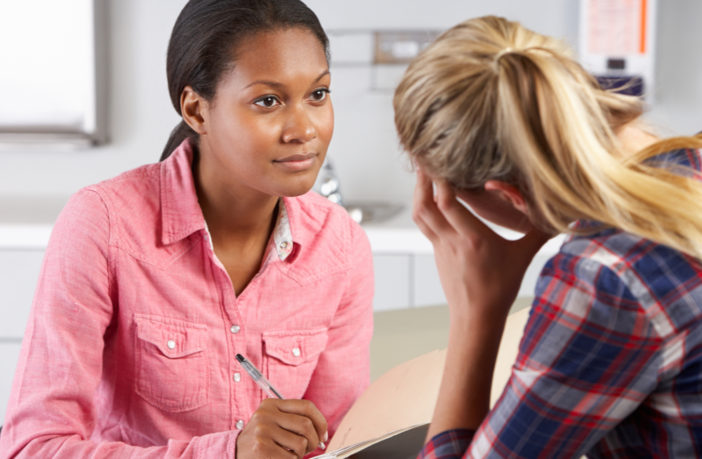Academics at the OU have received overwhelming support for their expertise in providing assistance to counsellors needing to move their services online in the current lockdown.
Counselling of all kinds, dealing with mental health, abuse, anxiety, bereavement and relationship advice among other things, has been quickly moved to digital platforms to permit continuity for clients.
To help the transition a newly-created course, Taking Your Counselling Online has been launched on The Open University’s OpenLearn Create platform and has seen more than 12,000 participants undertaking the course and 6164 who have downloaded the badge of completion.
Course launched with unprecedented tight turnaround
The course was written in just four days by psychology academics Dr Naomi Moller and Dr Andreas Vossler, both senior lecturers in the Faculty of Arts and Social Sciences (FASS). The course was created as an interactive, engaging, high-quality piece of online learning with the OU’s internal corporate and commercial team in an unprecedented matter of days.
It has been funded by FASS and is part of the OU’s coronavirus response. It is a free course which offers counsellors and psychotherapists key skills and knowledge at a time when face-to-face therapy is no longer possible/safe due to coronavirus.
Dr Moller said:
“Due to COVID-19, therapists wanting to keep offering support to clients have had to swiftly transfer their practice online – yet few will have had either any training or prior experience in online therapy.
“It is important ethically not to ‘abandon’ clients who are in the middle of therapy and this is why there has been a sudden mass migration of practice online in lots (but not all) contexts.
“We knew that in order to be helpful it was really important to try and put this resource in place as quickly as possible. For this it helped that we could rapidly reversion learning material we just had developed for a new mental health and counselling module for the psychology curriculum and use it for this primer course for practitioners.”
Dr Vossler explained that online therapy has historically been used for all sorts of counselling – one-to-one, couple, family, group, lots of different populations and lots of different issues.
“Also we heard stories through our own networks of people (due to the COVID-19 pandemic) moving lots of different types of clinical practice online. For this reason, we wrote the course with the aim that it would be relevant for all kinds of counselling and psychotherapy practice.”
He said the course covers the different forms of online therapy (video-conferencing based, audio-only/telephone and text-based, including chat and email) as well as the specific technological, legal, ethical and practical aspects of practising online.
To date the course has proved the fastest growing enrolment and badge issuing course the OU has ever had on its OpenLearn Create platform – proving its worth as a free CPD course.
Course “incredibly helpful”
The OU collaborated with the British Association for Counselling and Psychotherapy (BACP), which is the UK biggest professional society for counsellors and psychotherapists, with over 50,000 members.

It has been highly welcomed by charities and organisations, including psychology and clinical practices linked to the NHS.
YiS Young People’s Mental Health serves around 200 people in Milton Keynes and the surrounding area for counselling, with 19 volunteer counsellors and three part-time staff.
The charity’s CEO Gareth Eglinton-Pacitti said:
“This course has been so incredibly helpful for us, previously we have only done face to face work, so the COVID-19 outbreak could have put a stop to our service if we weren’t able to get counsellors trained and comfortable in online therapy.
“I am amazed it was put together so quickly and is of such high quality, covering all the key areas needed to provide a safe and ethical service.”
He praised the collaboration with BACP and the OU to provide the course.
“Our counsellors come from a wide variety of backgrounds and experience so this course allowed everyone to have a level footing and be prepared to work with young people safely at a time when it is so desperately needed.”
Dr Moller said that there is extensive research on therapy relationship online.
“The existing research suggests that clients do typically report strong therapy relationships and alliance in online therapy – this is important because there is a long-standing finding that good therapy relationships are important for good therapy outcomes.
“There is also a potential risk related to clients sharing too much/too fast for their own wellbeing at that precise time. This is one thing that online therapists need to watch out for but this is also something that counsellors and psychotherapists are used to looking out for in face-to-face practice too.”
Find out more about what the British Association for Counselling and Psychotherapy says about the course and taking counselling online.



